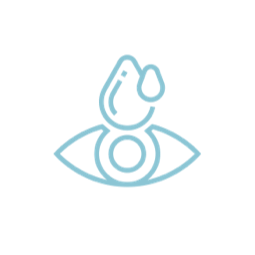Watching Over Eye Health
When you’ve got a sore throat, fever, or runny nose, you know it’s time to go to the doctor. Usually, your body gives you some sort of indication that it’s sick. Unfortunately, many eye diseases and conditions develop without any noticeable symptoms, making it difficult to watch over your eye health.
Your eye care team does more than check your visual abilities. Yearly eye exams are a crucial part of maintaining your eye health.
At Dr. Bishop & Associates, we have the tools and training to diagnose various eye diseases and conditions. We provide a customized treatment plan for every unique case.
Request an appointment with Dr. Bishop & Associates today.

Early Diagnosis Through Cutting-Edge Equipment
We work hard to stay at the forefront of eye care technology. As a result, our offices are fully-equipped with some of the world’s most advanced diagnostic tools and instruments.
In fact, we were the first Optometry Clinic in Canada to have the Zeiss Cirrus 5000 with Angioplex, and now we even have multiple OCTA to ensure optimal care.
Here’s a rundown of two technologies you’ll likely come across when assessing your eye health:

Zeiss Cirrus 5000 with Angioplex
The Zeiss Cirrus 5000 with Angioplex is a noninvasive, dye-free imaging technology. The quick, high-resolution scan allows our optometrists to visualize vascular and structural information. As a result, we can see tiny details for a more accurate look at changes in your eye health.
Fundus Autofluorescence
Fundus autofluorescence (FAF) is another type of noninvasive imaging that allows us to screen for diseases and conditions like macular degeneration and retinal dystrophies. FAF involves shining blue light onto the retina, triggering a natural fluorescent glow from retinal cells.
Optical Coherence Tomography with Angiography
Optical coherence tomography angiography (OCTA) allows us to look at the anatomical structure of the eye, particularly when it comes to the structure of tiny blood vessels and capillaries. Noninvasive imaging is helpful in tracking changes to your eye health, especially in macular degeneration, diabetic eye disease, and glaucoma.

Common Eye Diseases & Conditions
Your eye care and vision needs are unique, but our optometrists are eye care experts. Eye doctors and ocular specialists are familiar with what eye diseases and conditions have in common. Their knowledge and dedication gives them insight into how common conditions can affect your unique eyes.
Diabetic Eye Disease
Diabetes causes excessively high sugar levels in the blood which can damage blood vessel walls. These damaged vessels can become leaky and ineffective in bringing oxygen to parts of the retina, which can lead to many potential ocular complications, including retinal damage, glaucoma, cataracts, and vision problems.
Glaucoma
Glaucoma is an eye disease that damages the peripheral retina and, therefore, peripheral vision. This damage usually occurs slowly over a long period, although one type of glaucoma, acute angle closure, can develop very suddenly.
Glaucoma typically does not exhibit any noticeable symptoms. In most cases, the resulting vision loss is so gradual that the patient doesn’t know until they’ve already lost a significant portion of their sight.
Called “the silent thief of sight,” glaucoma is one of the leading cause of blindness in Canada.
Macular Degeneration
The macula is a small light-sensitive group of cells in the middle of the retina responsible for detailed central vision. When deposits called drusen form underneath the retina, it can disrupt tissue positioning, and prevent effective oxygen transmission to the retina. Once oxygen levels drop low enough, the body can respond in one of two ways:
- The retinal tissue dies (dry form)
- New blood vessels push into the retina (wet form)
Both forms cause significant damage to central vision, impacting your ability to read and see faces.
Symptoms of macular degeneration or age-related macular degeneration (AMD) include:
- Blurry vision
- Dark spots
- Lines appear distorted or wavy
Cataracts
As you age, the proteins in your eyes’ natural lens restructure into a cloudy film called a cataract. In the short term, cataracts can be treated with strong eyeglass prescriptions.
Once cataracts become too opaque to see through, the eye’s natural lens can be surgically removed and replaced with an implant to restore clear vision. The surgery typically takes less than 15 minutes per eye and is one of the most common surgeries in modern medicine.
Typical symptoms of cataracts include:
- Blurry vision
- Poor colour vision
- Light sensitivity
- Decreased night vision
- Glare or halos around lights
- Feeling or seeing a film over your eye
Corneal Dystrophies
When abnormal material congregates in the front transparent layer of the eye, also known as the cornea, it’s called corneal dystrophy.
Corneal dystrophies are genetic and, in some cases, tend to get progressively worse. Although some patients don’t experience any symptoms due to corneal dystrophy, others suffer from impaired vision.
Retinal Dystrophies
The term retinal dystrophy refers to various conditions that negatively affect the retina (the light-sensitive tissue at the back of the eye). Retinal dystrophies are genetic and usually occur in both eyes. These conditions typically result in deteriorating vision.
Cancer & Tumours of the Eye
Tumours and cancers occur when the body starts developing irregular or excess cells. There are two main types of eye cancers:
- Primary intraocular cancers begin in the eye.
- Secondary intraocular cancers develop elsewhere in the body and eventually spread to the eye.
Ocular Nutraceuticals
Your diet can have a significant impact on your eye health. For example, certain nutrients like vitamin C and zinc may reduce your risk of macular degeneration and other serious eye diseases.
Dr. Bishop & Associates carries a vast assortment of ocular nutraceuticals to supplement your diet and help maintain your eye health.
Ask our expert staff which ocular nutraceuticals might benefit you most. Visit our optometrists for more ways you can support your eye health.
Learn More About Protecting Your Eyes
Talk to your eye care team about ways to protect your vision. We’re here for lifelong vision and eye health. Book an appointment with Dr. Bishop & Associates to meet your health goals.
Our Locations
You deserve the highest standard of eye care. Our 4 locations make it easy for you to receive quality eye care, no matter where you live.
Willow Park Village
- Phone: 403-974-3937
- Fax: 403-509-4859
- Email: [email protected]
- 575 – 10816 Macleod Trail SE
- Calgary, AB T2J 5N8
Hours of Operation
- Monday: 10:00 AM – 7:00 PM
- Tuesday: 9:00 AM – 6:00 PM
- Wednesday: 10:00 AM – 7:00 PM
- Thursday: 9:00 AM – 6:00 PM
- Friday: 9:00 AM – 6:00 PM
- Saturday: 9:00 AM – 5:00 PM
- Sunday: Closed
Legacy Township
- Phone: 403-974-3937
- Fax: 587-392-7365
- Email: [email protected]
- 230 – 200 Hartell Way SE
- Calgary, AB T2X 4S9
Hours of Operation
- Monday: 10:00 AM – 7:00 PM
- Tuesday: 9:00 AM – 6:00 PM
- Wednesday: 10:00 AM – 7:00 PM
- Thursday: 9:00 AM – 6:00 PM
- Friday: 9:00 AM – 6:00 PM
- Saturday: 9:00 AM – 5:00 PM
- Sunday: Closed
Beacon Hill
- Phone: 403-974-3937
- Fax: 403-509-4854
- Email: [email protected]
- 610 – 11877 Sarcee Trail NW
- Calgary, AB T3R 1W5
Hours of Operation
- Monday: 10:00 AM – 7:00 PM
- Tuesday: 9:00 AM – 6:00 PM
- Wednesday: 10:00 AM – 7:00 PM
- Thursday: 9:00 AM – 6:00 PM
- Friday: 9:00 AM – 6:00 PM
- Saturday: 9:00 AM – 5:00 PM
- Sunday: Closed
Northgate Village
- Phone: 403-974-3937
- Fax: 403-509-4866
- Email: [email protected]
- 103 – 495 36 St NE
- Calgary, AB T2A 6K3
Hours of Operation
- Monday: 10:00 AM – 7:00 PM
- Tuesday: 9:00 AM – 6:00 PM
- Wednesday: 10:00 AM – 7:00 PM
- Thursday: 9:00 AM – 6:00 PM
- Friday: 9:00 AM – 6:00 PM
- Saturday: 9:00 AM – 5:00 PM
- Sunday: Closed
Our Google Reviews

Willow Park
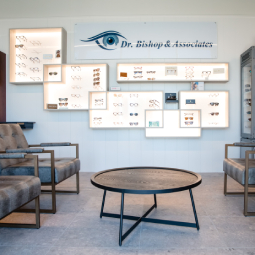
Legacy Township
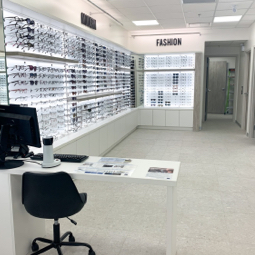
Northgate Village
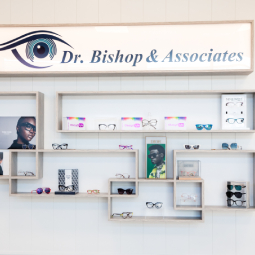
Beacon Hill
News & Resources
Vitamins & Supplements for Dry Eyes
Dry EyeDry eyes are more than just an occasional annoyance. For those who suffer consistently from this condition, it can be a daily struggle affecting their quality of life. Fortunately, various vitamins and supplements, such as vitamin A, vitamin B12, vitamin D, and omega-3 fatty acids, can help improve dry eye symptoms. When combined with home […]
What Causes Dry Skin Around The Eyes?
Dry Eye, Eye healthExperiencing dry skin around the eyes can be both uncomfortable and concerning. Many of us have felt that familiar irritation, persistent itching, and unsightly flaking that can make even the simplest tasks feel challenging. Environmental factors are a common cause, but it could indicate a skin condition, such as: Regular eye exams can help identify […]
Are Spider Veins Dangerous?
Aesthetics, Beautify @ Dr. Bishop’sSpider veins—those tiny, web-like patterns visible just underneath the skin—are a common concern for many. Here, we’ll unravel the truth behind spider veins, identify potential risks, and evaluate both natural and clinical ways to address them, helping prepare you to take the proper steps toward skin health and wellness. Spider veins are typically cosmetic in […]
Vitamins & Supplements for Dry Eyes

Dry eyes are more than just an occasional annoyance. For those who suffer consistently from this condition, it can be a daily struggle affecting their quality of life. Fortunately, various vitamins and supplements, such as vitamin A, vitamin B12, vitamin D, and omega-3 fatty acids, can help improve dry eye symptoms. When combined with home […]
What Causes Dry Skin Around The Eyes?

Experiencing dry skin around the eyes can be both uncomfortable and concerning. Many of us have felt that familiar irritation, persistent itching, and unsightly flaking that can make even the simplest tasks feel challenging. Environmental factors are a common cause, but it could indicate a skin condition, such as: Regular eye exams can help identify […]
Are Spider Veins Dangerous?
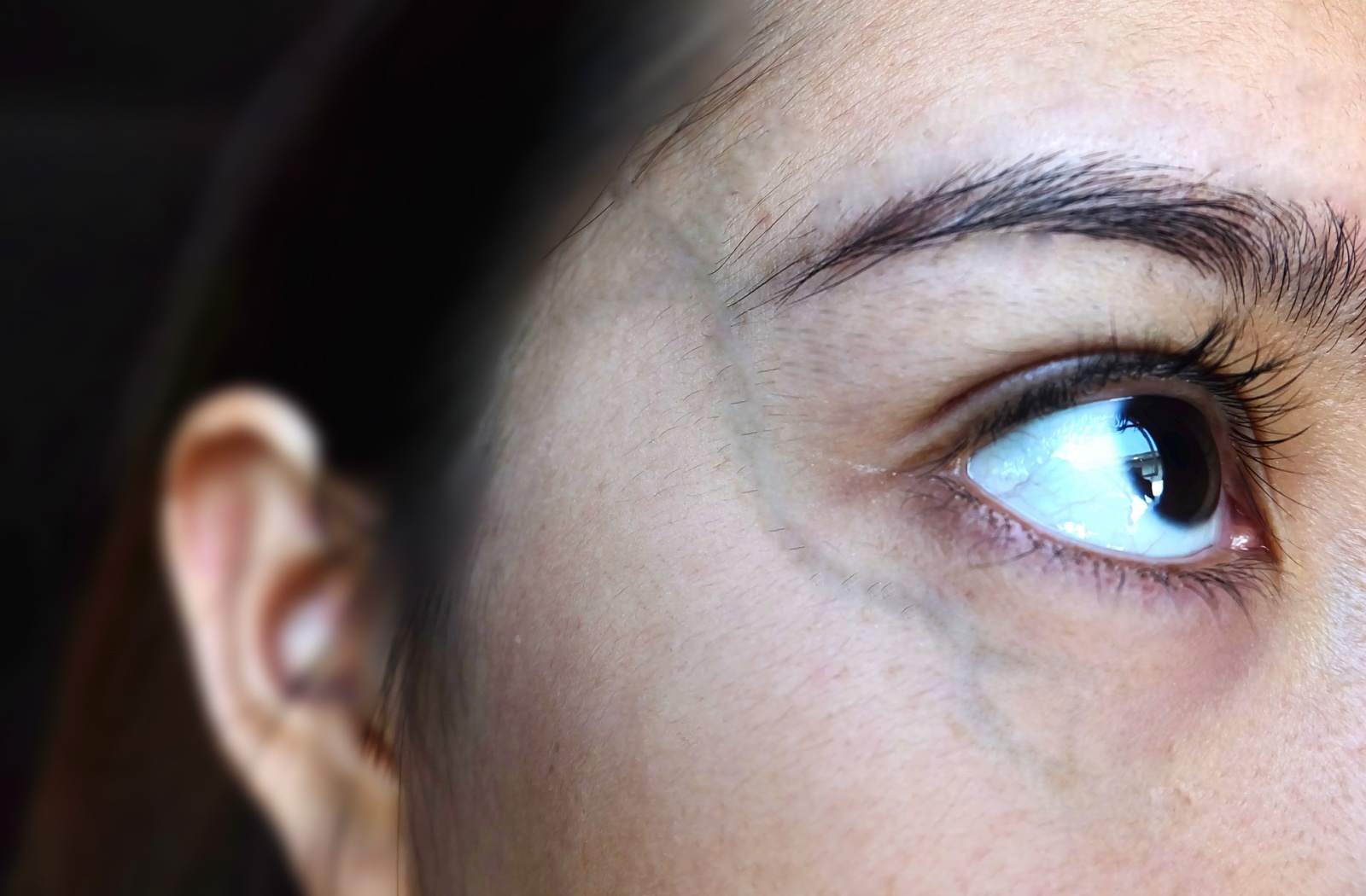
Spider veins—those tiny, web-like patterns visible just underneath the skin—are a common concern for many. Here, we’ll unravel the truth behind spider veins, identify potential risks, and evaluate both natural and clinical ways to address them, helping prepare you to take the proper steps toward skin health and wellness. Spider veins are typically cosmetic in […]


